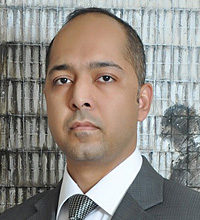Myths, Realities And The Family Office CFOs’ Leap Of Faith
Not many choose to be a professor, tax partner or an entrepreneur in their school essays querying aspirations. Similarly, those taking up the chartered accountancy qualifications worldwide have the usual sectors of manufacturing, FMCG, telecoms, financial services etc., on their radar for future employment. Their journey, be it in audit, compliance, financial reporting or tax takes them on the corporate ladder ascent in those sectors. However, there are certain sectors that reveal themselves much later in one’s career life. One such burgeoning sector of employment for CFOs is the family office.
Those who embrace family offices as an employment sector often claim that it was a leap of faith. Nonetheless, once they fully embrace a career in family offices, not many go back to the comforting monotony of the usual sectors. Thus the natural question is what is it that prompts a CFO to leave the safety of peer populated sectors and join a family office – be excited about it, find meaningful work at hand, and bring value to a family? Alternatively what is it that the family office has to offer a CFO? And, more importantly, why is there a need for the family office to hire a CFO?
Let’s see where the demand is coming from.
Today’s family patriarch or matriarch often lies awake at night. What is keeping him or her restless is the frenzied pace with which new investment products are being churned out and how daily market to market valuations are impacting his or her wealth. Family businesses may or may not be regulated, but patriarchs or matriarchs need to keep abreast of the implications of their decision-making, from tax, zakat, capital gains, fund flow restrictions, inheritance taxes, accounting issues, withholding taxes, double-taxation regimes and more.
They are concerned with family wealth preservation, wealth generation, mitigating risks from cash flow mismatches, clearly wanting to lap up any rich pickings, minimize unnecessary costs and — most importantly — provide for a comfortable lifestyle for the family and future generations.
Until the recent past, the family patriarch or matriarch would multi-task all of this independently, or possibly bring in the family’s next generation at a very early stage to help with investments, due diligence, managing capital calls, handling distributions, performing treasury functionalities, undertaking budgetary review, enforcing strategic business decisions, executing M&A’s, enacting restructurings, etc.
Now, while these matriarchs and patriarchs may continue to do all of the above, a new mindset has taken root. Specialization is the buzz word when it comes to recognizing the need for having somebody on board in terms of managing the finances, partnering in strategic decision-making and the implication of it all on wealth preservation and generation. CFOs are no longer a luxury but a necessity in family offices. Demand is up for CFOs in this non-traditional domain.
So what is it exactly that CFOs bring to the party? What values do they add that endear them to the family office?
In a nutshell it is that the CFO can bring value that is clearly missing despite the best efforts of the patriarchs or matriarchs. To manage finances, you need spotless back office operations. You need a specialist. You need a professional. You need a jack-of-all-trades who is also a master of all tricks. I believe that given the curriculum, educational regime, work experience roller-coaster and extensive interaction with bankers, lawyers, regulators and other stakeholders, the case is clearly made for a seasoned, versatile person (CFO) to take charge. Family offices worldwide are clearly accepting that premise.
CFOs are usually the first C-title outside the family hierarchy that are hired – even before a CIO. It is not a panic or copy-paste approach. It is an inevitable recognition of the value a CFO can lend to a family investment office. Why is this true?
A CFO – either through education and affiliation via a professional institute or different jobs over the years – generally comes in armed with experience of other worlds, industries, latest financial products, treasury and taxation, governance, budgeting and cost minimization tactics, internal controls, system implementation expertise. This – if it can be combined with a sense of loyalty to the family and an absolute regard to confidentiality – is what the family patriarchs/matriarchs dream of and pray for – and will pay for.
Family businesses with affluence and a sense of corporate governance are slowly and gradually seeing the benefits trusted CFOs can bring to the family financial affairs. They can streamline the finances, provide transparency for all family members who are beneficiaries, review investment decisions on their behalf, manage cash flow mismatches and exposures, and at the same time act as custodian, conscience, strategist, advisor and educator.
The CFO also performs another very value-added function — that of being a risk manager by helping the family understand the risks and complexities of the business, investment decisions and related activities. In finance, risk is the probability that an investment’s actual return will be different than expected. This includes the possibility of losing some or all of the original investment. The CFOs’ added value is that they bring risk management — embedding risk tolerance in the investment framework or the ability to price that risk in the cash flows, P&L and the family mindset.
In a family office, there is generally zero tolerance for surprises. Why? Because surprises are usually the tip of the iceberg. Therefore a CFO’s role in a family office (just like anywhere else) is to ensure that the books and records are true and fair, reflect completely the financial affairs and health of the family investments, assets and liabilities and provide an honest reflection of the state of affairs. So if impairment has happened and a haircut is prudent or a write-off is inevitable, it is the CFOs’ responsibility to challenge the valuation and provide the value at risk (VaR), so to speak!
In an unfortunate situation, CFOs can be asked to be “creative.” Ideally the CFO stands up and reminds everyone that he or she is not a novelist or a painter. However, when asked to be a “solutions provider,” the CFO should clearly be able to manage the business and financial implications of past or proposed decisions and help steady the boat.
While in a family office, the family patriarch or matriarch is also the father or mother figure to the employees – who may or may not be family members, including the CFO. However, the intent should be that the CFO is not a clone. Understandably, investment decision-making is at the family or a constituted board level, but the CFO is expected to chip in with an honest, professional assessment devoid of influence. This independent opinion (with the customary and necessary deference) becomes a legitimate and useful resource to the family. This is what a fair, corporate structure- oriented family office requires and what the CFO is best suited to deliver. Fortunately, family offices everywhere are beginning to recognize this.
About the contributor:
 Asher Noor is CIO & CFO with AlTouq Group, Saudi Arabia, where he looks after the accounting and finances of group holding, subsidiary and associate structures, banking relationships and various investments. He also represents the AlTouq Group on the board of several international companies. The 2014 recipient of the FFI/EDHEC GEMBA scholarship, Asher can be reached at asher@altouq.com.
Asher Noor is CIO & CFO with AlTouq Group, Saudi Arabia, where he looks after the accounting and finances of group holding, subsidiary and associate structures, banking relationships and various investments. He also represents the AlTouq Group on the board of several international companies. The 2014 recipient of the FFI/EDHEC GEMBA scholarship, Asher can be reached at asher@altouq.com.
Disclaimer: This is an article written as a guest author for the FFI Practitioner, in my personal capacity.




